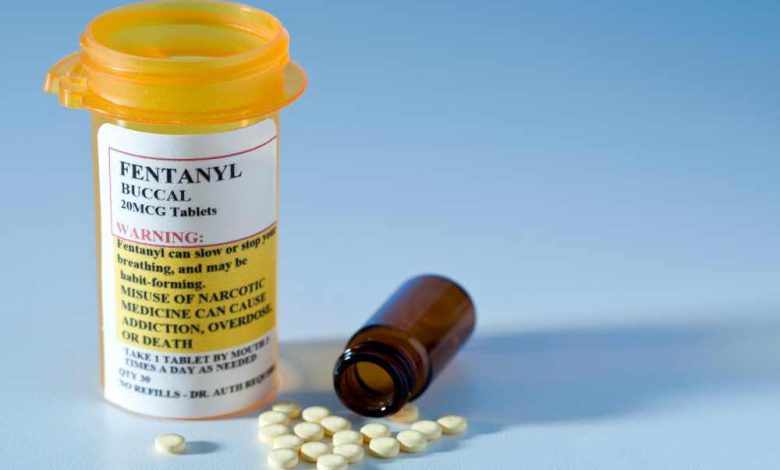What is the best way to treat opioid addiction?
What is the best way to treat opioid addiction?

Opioid addiction has become a widespread epidemic, affecting millions of individuals worldwide. As the numbers continue to rise, finding the best way to treat opioid addiction is crucial in order to alleviate the devastating consequences it brings. A multitude of treatment options exists, but determining which one is most effective remains a subject of ongoing debate.
One widely recognized approach for treating opioid addiction is medication-assisted treatment (MAT). This method combines behavioral therapy with medications such as methadone, buprenorphine, or naltrexone. These medications help reduce withdrawal symptoms and cravings while allowing individuals to gradually taper off opioids under medical supervision. MAT has shown promising results in preventing relapse and reducing overdose deaths, making it an essential component in combating the opioid crisis. In addition to MAT, counseling and therapy play a vital role in treating Opioid addiction.
Counseling and therapy:
When it comes to treating opioid addiction, counseling and therapy have proven to be some of the most effective approaches. Opioid addiction is a complex issue that affects not only the physical health but also the mental and emotional well-being of individuals. Counseling provides a safe space for patients to explore the underlying causes of their addiction, understand triggers and coping mechanisms, and develop strategies for long-term recovery.
One of the most widely used forms of counseling for opioid addiction is cognitive-behavioral therapy (CBT). CBT aims to change negative thought patterns and behaviors associated with drug use by helping individuals recognize and challenge their destructive thinking. Through regular sessions with a trained therapist, patients learn healthier ways to cope with stress, manage cravings, and establish a support network that encourages sobriety. This type of therapy can be particularly beneficial in helping individuals develop essential skills needed for relapse prevention.
The importance of addressing psychological aspects
The importance of addressing psychological aspects in the treatment of opioid addiction cannot be overstated. While medication-assisted treatment (MAT) has proven effective in managing withdrawal symptoms and reducing cravings, it is equally crucial to address the underlying psychological factors contributing to addiction. Opioids not only alter brain chemistry but also often serve as a coping mechanism for individuals struggling with emotional pain or trauma. Therefore, a comprehensive approach that combines medication, therapy, and support is necessary for successful recovery.
When treating opioid addiction, therapy plays a pivotal role in helping individuals explore and resolve the psychological components that contribute to their substance abuse. Cognitive-behavioral therapy (CBT), for instance, can help patients identify triggers and develop healthy coping strategies to manage cravings effectively.
Support groups and peer recovery:
Opioid addiction continues to plague communities worldwide, leaving countless families devastated in its wake. As the epidemic rages on, healthcare professionals and addiction specialists are constantly seeking effective treatment methods. While there is no one-size-fits-all solution, support groups and peer recovery have emerged as powerful tools in combating opioid addiction.
Support groups provide a safe space for individuals struggling with opioid addiction to share their experiences, gain valuable insights, and receive emotional support from peers who can empathize with their struggles. These groups often follow evidence-based approaches like the 12-step program or cognitive-behavioral therapy (CBT) techniques tailored specifically for substance abuse. Engaging in regular group sessions allows participants to develop a sense of belonging and community while offering each other encouragement along the path to recovery.
The power of community in addiction recovery
The power of community in addiction recovery is a vital component when it comes to treating opioid addiction. Opioid addiction is a complex issue that requires comprehensive treatment approaches, and the support and understanding of a community can make all the difference in an individual’s recovery journey. A strong sense of belonging, encouragement, and accountability are just some of the benefits that come with being part of a supportive community.
One effective way to harness the power of community in treating opioid addiction is through support groups. Connecting with others who have experienced similar struggles helps individuals feel less isolated and provides them with a safe space to openly discuss their challenges. In these groups, members share their stories, exchange coping strategies, and offer emotional support. The collective wisdom gained from individuals who have successfully battled addiction can inspire hope and motivate others to persevere through their own recovery process.
Holistic approaches:
When it comes to tackling the pressing issue of opioid addiction, many experts believe that holistic approaches offer the best way forward. Holistic treatments address addiction in a comprehensive manner, taking into account not only the physical dependence on opioids but also the mental and emotional aspects that contribute to substance abuse. By considering the whole person rather than just focusing on symptom management, holistic approaches aim to promote long-term recovery and overall well-being.
One effective holistic approach is medication-assisted treatment (MAT), which combines medications like methadone or buprenorphine with counseling and behavioral therapies. These medications help alleviate withdrawal symptoms and cravings, allowing individuals to focus on their recovery without constantly battling intense physical discomfort. Alongside this pharmacological support, counseling sessions provide a safe space for patients to explore underlying issues contributing to their addiction and develop healthier coping mechanisms.
Exploring alternative therapies for comprehensive healing
Treating opioid addiction has become a pressing public health concern, prompting the need for comprehensive approaches that go beyond traditional methods. While medication-assisted treatment (MAT) such as methadone or buprenorphine is widely used, medical professionals and researchers are increasingly exploring alternative therapies to enhance the effectiveness of recovery programs. These alternative therapies aim to address the physical, psychological, and emotional aspects of addiction simultaneously.
One promising approach gaining recognition is cognitive-behavioral therapy (CBT). CBT helps individuals identify and modify negative thought patterns and behaviors associated with drug use. By teaching coping mechanisms and stress management techniques, CBT empowers individuals to develop healthier ways of dealing with triggers that may lead to relapse.









